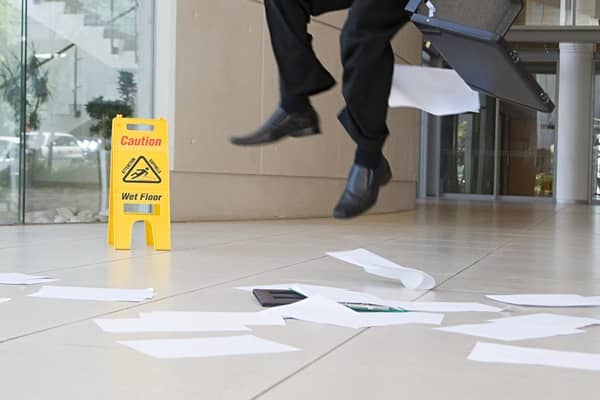You don’t need to hire a high-priced safety consultant or overhaul your entire operation to make your workplace safer. In fact, some of the most effective safety improvements are the ones you can handle yourself – on a tight budget and without disrupting your day-to-day operations.
Workplace safety is about protecting your people, your productivity, and your bottom line. When safety protocols are ignored or outdated, accidents happen. And even a minor injury can lead to lost workdays, insurance claims, and long-term liability issues.
Thankfully, a safer work environment doesn’t have to cost a fortune. There are simple, low-cost steps you can take right now that make a real difference.
1. Improve your safety signage
Take a walk through your workplace with fresh eyes. Are your warning signs visible? Are they up to date? Are there areas where safety instructions should be clearer?
Good signage is one of the easiest and most overlooked ways to improve safety. Whether it’s reminding employees to wear PPE, marking hazardous zones, or posting evacuation maps, signs serve as constant visual cues that keep safety top-of-mind.
Make sure signs are well-lit, positioned at eye level, and printed in languages your team understands. You don’t need a consultant to point out where someone could slip, fall, or make a costly mistake. A few clear signs in the right places can do the job.
2. Conduct your own safety walkthroughs
You don’t need to be an expert to spot obvious hazards. Set aside time each month to do a basic walkthrough of your facility. Check for blocked exits, frayed cords, unmarked hazards, improper storage, and anything else that looks out of place.
Bring a checklist or, better yet, create your own customized version based on your specific work environment. You can involve a team member or two who work in different departments so you’re getting a broader perspective.
You’ll be surprised how much you catch when you start paying attention. And over time, your employees will notice that safety matters to you – which encourages them to take it seriously, too.
3. Offer online safety certifications
Formal training doesn’t require classrooms, instructors, or bulky binders anymore. Online certification programs are fast and incredibly effective – especially for roles that require specialized safety knowledge.
Take forklift operation as an example. If you have employees driving forklifts, OSHA requires that they be properly trained and certified. Instead of bringing in an outside trainer or risking noncompliance, you can sign them up for a 100 percent OSHA-compliant, same-day forklift certification online.
Online safety certifications are convenient and trackable. Plus, they give your employees the knowledge they need to operate heavy equipment safely. You’ll have printable proof of completion, and your team can complete the training without leaving the building. It’s one of the smartest investments you can make for less than you’d spend on a lunch order.
4. Streamline your storage
One of the leading causes of workplace accidents is poor organization. When tools, materials, and products are scattered or stacked in unsafe ways, it leads to trips, falls, and unnecessary strain on your team.
Take a look at your storage areas. Are items labeled? Are heavier materials stored at waist level to reduce lifting injuries? Are walkways clear?
Sometimes this is as simple as assigning zones and reviewing instructions to follow a few basic rules about where and how items should be stored.
5. Refresh your training with in-house sessions
Sometimes the most impactful thing you can do is gather your team and have a short, focused conversation about a specific topic – like ladder safety, proper lifting technique, or how to respond to a spill.
Keep these meetings simple. Choose one issue at a time, explain why it matters, and show your team how to handle it correctly. (Use real examples from your workplace when possible.)
You can do this monthly, quarterly, or even as part of a daily huddle. The goal isn’t perfection – it’s repetition and awareness. When safety becomes part of your regular communication, it becomes part of your culture.
6. Encourage a culture of reporting
You can’t fix what you don’t know about. And too often, employees stay quiet about safety issues because they don’t want to get in trouble or cause problems.
Make it clear that reporting a safety concern isn’t complaining – it’s protecting the team. Let your employees know how to report issues anonymously, if needed, and make sure they feel heard when they do.
If someone reports a wobbly handrail or faulty equipment, don’t brush it off or delay the fix. Follow through and show your team that you take their input seriously. The more you build trust around safety, the more proactive your people will become.
Putting it all together
You don’t need a consultant, a huge budget, or a six-month rollout to make your workplace safer. You just need to start where you are – with small, consistent actions that reinforce the message: Safety matters here. And once safety becomes something you do instead of something you talk about, the rest starts to take care of itself.

